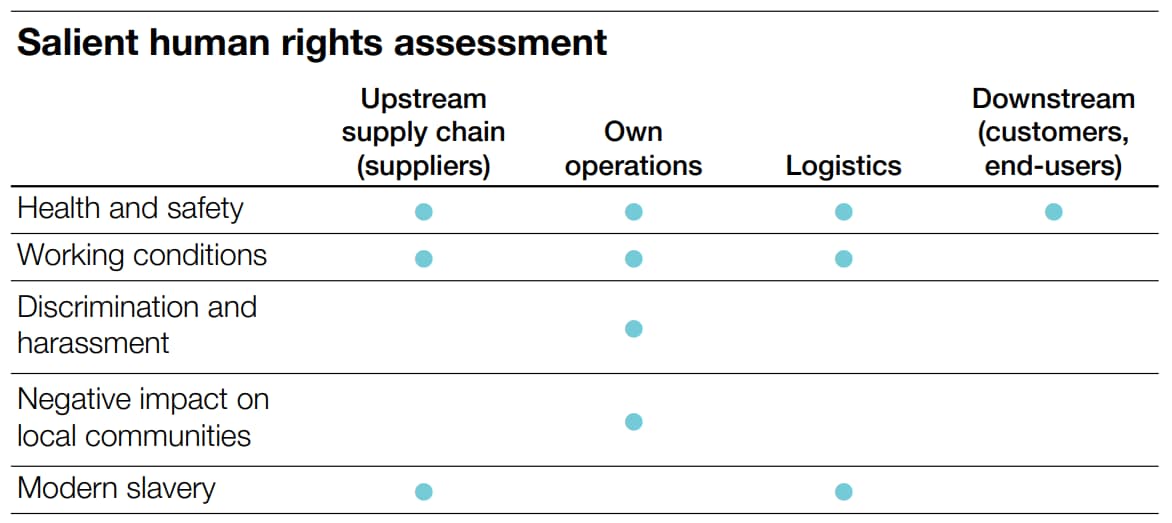
Sustainability
At AkzoNobel, we understand that through our roles as employer, manufacturer, business partner and member of many communities, we can potentially directly and indirectly impact the lives of millions of people.
While we’re committed to making a positive impact through our products and our community programs, we’re aware of the potential negative impact we might cause, contribute to or be linked to. We recognize our responsibility to respect the human rights of all stakeholders across our value chain. We’re committed to actively and systematically assessing (potential) human rights impacts and take action where needed to ensure our impact on people’s lives is as positive as possible.
While we respect all human rights equally and take all human rights impacts seriously, we have prioritized (potential) human rights impacts in accordance with the United Nations Guiding Principles on Human Rights (UNGPs). These are the so-called salient human rights issues; the human rights that are potentially at risk of the most severe negative impact through our activities or business relationships. After an internal and external consultation stakeholder process, we identified five salient issues on which our human rights framework is focused and where in the value chain the risk is the highest. Health and safety and Working time (the latter is part of the salient issue Working conditions) have also been identified as a material topic under the latest CSRD’s double materiality assessment. Read more on our salient human rights issues in our latest annual report.
Our Executive Committee is responsible for ensuring that our company operates in line with our core principles of safety, integrity and sustainability, including our commitment to respecting human rights. Our Executive Committee has delegated part of this responsibility to our Human Rights Committee, responsible for developing and supervising the company’s human rights framework. The committee is cross-functional and includes representatives (regular members) of ESG Legal; Health, Safety, Environment and Security; Human Resources; Integrity and Compliance; Procurement; and Sustainability. Other functions and businesses are invited based on the agenda. The committee meets regularly to review findings and progress, provide guidance and act where necessary. Preventive, mitigating and remediating measures as a result of our due diligence processes are also monitored by the Human Rights Committee.
We understand that identifying salient human rights issues is an ongoing process. While undertaking due diligence on the salient human rights issues, we continue to analyze and monitor our potential impacts on human rights across our value chain while paying extra attention to vulnerable groups. We value the engagement with both internal and external stakeholders, such as employees, human rights experts, NGOs and society at large, as being key in these processes. Frank and open dialog with all our stakeholders enables us to go further and faster than we could alone.
We promote a feedback culture through communications and training. An open atmosphere helps identify issues, including concerns relating to respect for human rights. In addition, our SpeakUp! grievance mechanism offers our employees, business partners and the general public a confidential environment in which they can raise concerns relating to breaches of our Code of Conduct, including the human rights reflected therein. The availability of the SpeakUp! process to raise concerns is widely communicated in and outside the company. The results are reported every year and can be found in the Integrity and compliance management chapter in our annual report.
